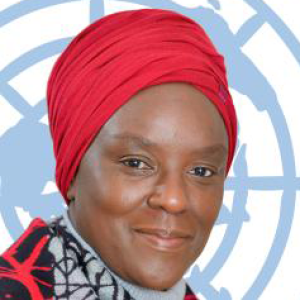Programme Director, Bo Mme le Bo Ntate, please allow me to pay my Respects to:
His Majesty King Letsie III who has graced us with his presence
The Right Honourable the Prime Minister of the Kingdom of Lesotho
His Excellency President Azali Assoumani, Chairperson of the African
Union and President of the Union of Comoros
Honourable President of Senate
His Lordship the Chief Justice
Honourable Deputy Prime Minister
Honourable members of his Majesty’s Cabinet
Honourable Ministers present, in particular Honourable Ministers from the sister countries of Botswana, Cote d`Ivoire and Comoros representing their Heads of State
Excellency Mr. Moussa Faki Mahamat, Chairperson of the African Union Commission, represented here by Commissioner Ambassador Minata Samate Cessouma
Excellencies Heads of Diplomatic Missions and International
Organizations, and UN agencies
Honourable Members of Parliament both from Lesotho and from various Regions of our Continent
Distinguished Guests
Members of the Media
All protocols observed
This dialogue on nutrition financing comes at a time when the world faces daunting economic, developmental and might I say existential challenges:
The cost of living is increasing with inequality widening in many countries, only yesterday I was reading the latest consumer price index from South Africa which impact on Lesotho and which shows that products have become more expensive in the last year. These products include cabbage, maize meal, paraffin, samp, tomatoes and baby food, which have all become expensive for our people.
The Covid 19 pandemic has reminded us that without health, there is no future and no life.
The consequences of the frequency and intensity of shocks caused by climate change are being experienced in our lifetime, leading to loss of life, displacements, damage to crops and livestock and causing food insecurity for those already vulnerable and marginalised.
The world is not on course to stop climate change;
The world is currently not on course to deliver the sustainable development goals;
Current estimates indicate that most countries will not achieve internationally agreed nutrition targets by 2025 either.
These challenges are many and find Africa in an already weakened state of development.
Following the endorsement of the Abidjan Declaration to “Accelerate investment, implementation and coordination to improve nutrition and food security in Africa" last month, the gathering here today is crucial to capitalize on the growing political momentum on nutrition and to develop evidence-based policies and supportive financial instruments that provide impetus for more sustainable food systems (nutrition included) and healthier diets.
Achieving and sustaining nutrition progress in the continent requires investments, policy coherence and coordinated action among multiple stakeholders (including leveraging our communities, knowledge and traditions of healthy food practices) and across multiple sectors, including health, agriculture, social protection, education, and WASH to mention but a few.
The continent is poised on a cliff edge – whether it takes off and falls off is a choice that this generation will make. Either deliberately by choosing to invest in communities’ self-sufficiency, treating our natural endowments with respect and producing sustainably. Not tackling the issue of nutrition and food systems will impact on productivity, delay economic growth, increase financial burden on the health systems and impede education for many children. Whatever the decision/choice, let us be clear that there will be a cost.
There three thoughts that are on my mind:
Africa must first and foremost look internally to generate resources, create the fiscal latitude to finance its development agenda including nutrition, food systems that are sustainable and that help accelerate community resilience and wellbeing.
We must go back to basics and find solutions in the simplicity of our community lives – particularly in those areas that remain relatively unscathed by overprocessed unhealthy foodstuffs. Africa’s food sufficiency must be grounded in the lived realities of the rural areas.
Leverage the comparative advantage of other African countries. It is often said that Africa is a big continent with 54 countries. A whole range of biodiversity, soils, weather conditions and different practices. The African Continental Free trade area must deliver for Africa.
Ladies and gentlemen,
In Lesotho we are grateful and inspired by the leadership of His Majesty the King as the African Union Nutrition Champion and FAO Special Goodwill Ambassador for Nutrition. We also welcome the commitment of the Government of Lesotho to drive forward policies that promote food security and nutrition for all. These are already influencing the agenda setting in the country. Moving from policy to practice is now needed to make a difference at household level, in every home, every village, every school, every healthcentre, every district and every country on the continent.
The UN in Lesotho remains committed to working with the government, civil society, the private sector, development partners to strengthen nutrition, food security, environmental sustainability.
Bo me le bo ntate,
Access to adequate food is a fundamental human right.
Kea leboha!








